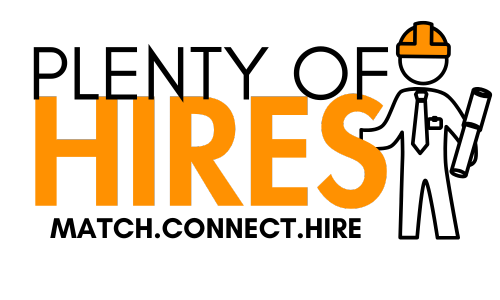Why Cultural Fit Beats a Perfect Resume Every Time
- Plenty of Hires

- Nov 5, 2025
- 4 min read

If you’ve been hiring for a while, you’ve probably seen it happen: the candidate with the perfect resume — every qualification checked, great experience, impressive references — who ends up being a complete nightmare once they’re on the job.
On paper, they were perfect. In reality, they were gone in six months.
That’s because a great resume doesn’t tell you how someone communicates, how they handle feedback, or whether they’ll mesh with your team. It can’t tell you if they’ll show up with a positive attitude on a Monday morning or stir up drama by Wednesday.
And that’s why cultural fit beats a perfect resume every single time.
The Resume Trap
Resumes are easy to lean on. They give us structure, something tangible to measure — experience, dates, skills, titles. But the problem is, resumes only tell you what a person has done, not who they are or how they work.
Hiring off a resume alone is like buying a house based on the photos. Everything looks great from the outside, but you won’t know if the foundation’s solid until you’ve moved in — and by then, it’s expensive to fix.
When employers hire for skill or experience alone, they often end up right back where they started — short-staffed, frustrated, and re-hiring for the same role a few months later.
What Cultural Fit Actually Means
“Culture fit” gets thrown around a lot, but it doesn’t mean hiring people who all think, act, or look the same. It means hiring people whose values, work ethic, and communication styles align with your team’s.
It’s about finding people who care about the same things you do — quality work, respect, accountability, teamwork — and who can thrive in the environment you’ve built.
When you hire for culture fit, you’re not just filling a position. You’re adding someone who will stay, grow, and make the team stronger.
The Cost of Ignoring Culture
When culture fit is off, the ripple effects show up fast:
Morale drops because others have to pick up the slack or deal with the attitude.
Productivity dips because communication breaks down.
Turnover increases — and with it, your time and hiring costs.
You might fill a seat quickly, but if the wrong person drains your team’s energy, you’ll lose far more in the long run. Trust us.
What to Look for (Beyond the Resume)
Here’s where the real work happens — learning to spot who a candidate is, not just what they’ve done.
1. Self-Awareness
Ask about a time they made a mistake or received feedback. A self-aware person owns it and talks about what they learned. A red flag is someone who blames others or “can’t think of anything.”
2. Attitude
Listen for language that shows ownership. Do they use “we” more than “they”? Do they speak respectfully about past employers? A candidate who focuses on what they learned instead of who was at fault shows maturity.
3. Reliability
Ask for examples of how they handle responsibility. Reliable people give specific examples — “I was always the one opening up the shop,” or “My team counted on me for safety checks.”
4. Coachability
The best hires don’t think they know it all. Ask how they’ve handled constructive criticism. The right answer isn’t “I never get feedback” — it’s “It wasn’t easy to hear, but I worked on it.”
5. Team Compatibility
Ask about their ideal work environment or how they handle differences on the job. You’re not just hiring skill — you’re adding a new personality to the mix. Look for people who say, “I like when teams can laugh but still get the work done.”
How to Actually Hire for Culture Fit
Here’s how to bring it into your process without dragging things out:
✅ Use assessments.
Don’t rely on gut instinct alone. Behavioral or values-based assessments give insight into a person’s motivators and fit.
✅ Get your team involved.
Let potential coworkers meet the candidate. A short team chat can reveal more about chemistry than a second interview ever will.
✅ Ask open-ended questions.
“What’s important to you in a work environment?” or “What motivates you to do your best work?” can tell you far more than asking about job duties.
✅ Be honest about your culture.
If your team runs fast-paced and direct, say that. Hiring is a two-way match — they should know what they’re walking into.
Why This Matters More Than Ever
The best teams don’t form by accident. They’re built by people who understand that skills can be taught, but attitude can’t.
In a world where time and talent are both stretched thin, hiring for cultural fit isn’t just a “nice to have.” It’s your best retention strategy.
When you hire the right people — the ones who share your work ethic, values, and drive — you don’t just fill a job. You build a team that lasts.
👉 Want to build a stronger, more reliable crew?
Check out our other employer resources or visit the [Employer Page] to learn how Plenty of Hires helps you hire smarter — and faster — without sacrificing fit.

Comments